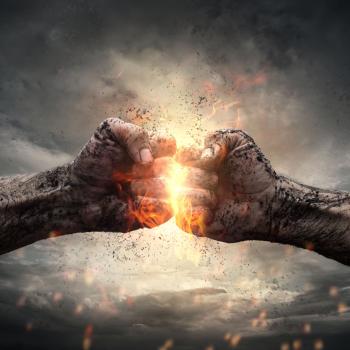It is also worth noting that while women do not serve in the Infantry, they have come much closer to it than people realize, and have therefore dealt with the off-putting hygiene issues. If you've been horrified to read about marines defecating in bags beside fellow soldiers, and if you've wondered how that translates to women dealing with their menstrual cycles while on a mission and in close quarters with men, here's your answer: I used that bag to deal with my cycle in the back of a HMMWV next to the feet of my gunner who happened to be a male. War is war and a team is a team whether you're a man or a woman; get over it. It's already happening.
The physical limitations argument is valid, but not for half the reasons I've heard cited. A female marine who wrote an op-ed entitled "Some advice on women in combat from a female veteran" makes the case that shorter females will need a leg up to scale a ten-foot wall, endangering the lives of the men who can do it all by themselves. I know very few men who could scale a ten-foot wall, unaided, in full battle rattle, and if this marine is being told that's what her male counterparts are doing, I have a bridge in Brooklyn to sell her.
Service members who have never been attached to a combat unit—or who have never served with women outside the wire—need to realize that passing along hearsay (such as "I saw the male combat units when I was in Iraq!") does not help; they are representing themselves to the public as subject matter experts without having lived the experience, compounding the confusion and dishonoring the service of those who have.
The men and women who have been placed in these situations should be allowed to speak for themselves, and their voices should not be overshadowed by a cacophony of marines and soldiers who can only imagine scenarios that their counterparts have already lived through.
Lest my position be misconstrued, I am not making a case for women in the Infantry, but I believe that before any real discussion takes place, people need to know where and how women are serving, in the here-and-now.
It is a fact that women sustain stress injury at a substantially higher rate than their male counterparts, and yes, this could potentially compromise the mission and endanger the men on the line. This is a legitimate argument and a widespread problem that needs to be addressed.
Marine Captain Katie Petronio is one of the few women who have completed the Infantry Officer Course, and she thoroughly establishes her credibility, writing in the Marine Corps Gazette, "Get Over It! We Are Not All Created Equal!". Petronio's argument focuses on the physical limitations of women during prolonged combat operations and the long-term effects of the physical damage that result from the constant stress placed on the human body in combat.
I wholeheartedly agree with Captain Petronio's assessment. I didn't put my body through half of what she did, and I was still among the countless female soldiers who had to push through severe stress injuries my entire time in service. I will probably suffer the long-term consequences of these stress injuries for the rest of my life.
On the other side of the argument, Kayla Williams, writing at Slate.com points out that "Our Boots Have Been On the Ground." Combat, she notes, is pretty much just another day at work for many female soldiers. The most important take-away from the article is this: once you are out on the ground in a unit, the same men who told you that you didn't belong there suddenly care a lot more about your skills and a lot less about your gender. When women are integrated into combat units, there comes a point where your gender is the last thing anyone on that team cares about.
I don't know how many soldiers have spent months on end in the field with no showers, but I know more than one female who spent weeks-on-end building patrol bases from the ground up, sleeping in the center of a circle of trucks, within shooting distance of the nearest town or village. I have lived out on a patrol base with no running water; my personal hygiene was taken care of using a water bottle and a washcloth until I could make the next refit at the nearest Forward Operating Base. I've slept in the same quarters with the men on my team. I know of entire MP units that integrated their sleeping quarters.
While I am a proud combat veteran, I now realize I am among a hidden class of ghost soldiers. Some of my sisters whom I served with in Iraq never made it home. And while we walked in the footsteps of the soldiers before us through fields laden with Improvised Explosive Devices, wearing tags that identified our religion along with our names, it seems our country has no idea we were there.
It is important to ask what putting women in combat will do to unit cohesion, and to examine how it will affect the mission, but we don't have to hypothesize the answers. All we have to do is ask the men and women who have already been there, done that. If you're not among them, I don't care what uniform you're wearing, please step aside and let the soldiers who have lived it be heard.
In memory of Army Spc. Mary J. Jaenichen and Army Sgt. Trista L. Moretti.




